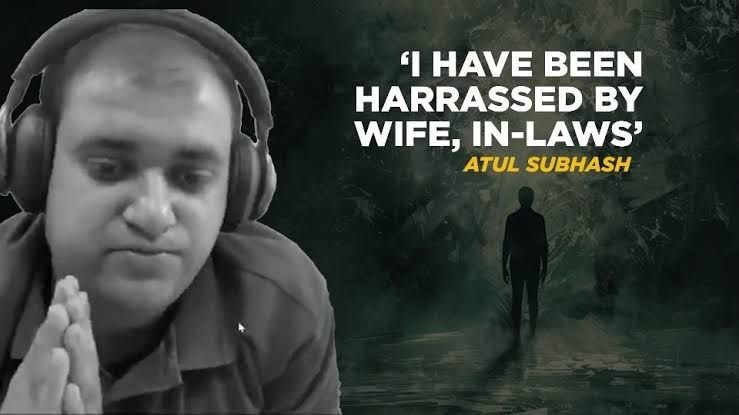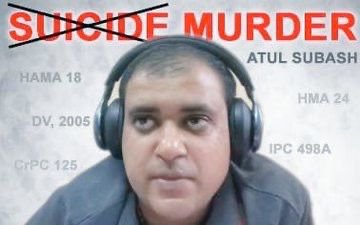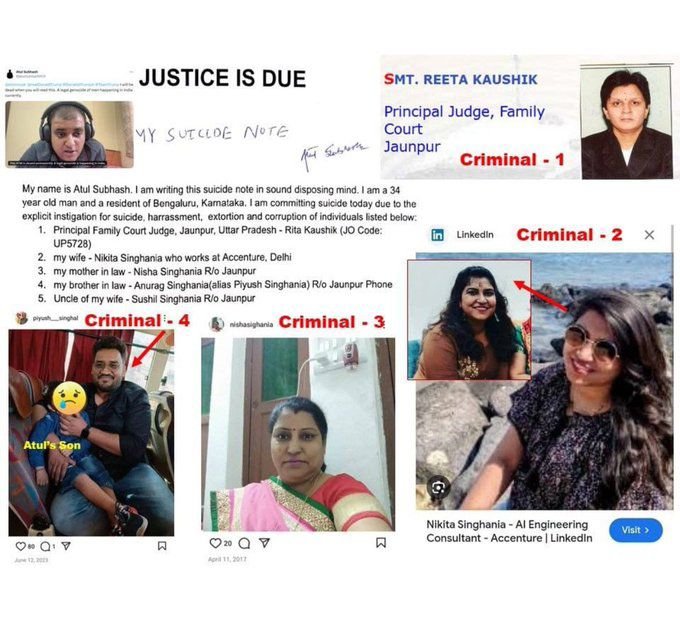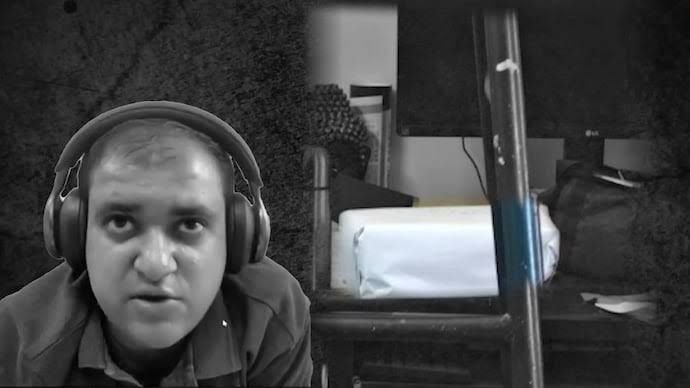The shocking news of Subhash Atul’s death by suicide in Bengaluru sent ripples across the country, igniting a conversation about men’s mental health, marital disputes, and the failures of both the legal and social systems. Subhash Atul, an executive at an automobile company, was found dead in his apartment in the Marathahalli area, leaving behind a 24-page suicide note and a video that detailed the immense emotional and financial pressures he had been enduring.

ACCUSATIONS OF HARASSMENT AND EXTORTION
In his suicide note and video, Subhash Atul accused his wife, Nikita Singhania, her family, and even a family court judge of severe harassment, extortion, and corruption. According to Atul’s allegations, his wife and her family demanded Rs 3 crore to withdraw police cases against him, along with an additional Rs 30 lakh for him to have visitation rights to see his son. He also accused the family court judge of misconduct, claiming that the judge had laughed when his wife suggested he should commit suicide and demanded Rs 5 lakh to settle their case.

A BATTLE WITH THE LEGAL SYSTEM
Subhash’s story is not just one of personal tragedy but also of systemic failure. His family, including his parents and brother, had to endure multiple court hearings, with over 120 dates. Atul, who had to travel from Bengaluru to Jaunpur for each hearing, expressed his frustration in his final video. He detailed the emotional and financial toll the prolonged legal battle had taken on him, underscoring the lack of support and understanding for men undergoing similar situations. Atul’s plea in his last moments was heartbreaking: he requested that his ashes not be immersed until those responsible for his harassment were punished.

MEN’S RIGHT AND MENTAL HEALTH
Atul’s tragic death shines a spotlight on the broader issue of men’s mental health, especially in the context of divorce and family disputes. While much of the national discourse on domestic violence and mental health tends to focus on women, stories like Subhash Atul’s are raising awareness of the fact that men, too, face significant emotional and psychological distress.

SUBHASH ATUL’S CRY FOR JUSTICE
In his final moments, Subhash Atul wore a shirt with the words “Justice Is Due” written on it, a statement that has resonated across the nation following his death. His family, particularly his brother, Vikas Kumar, has filed a police complaint accusing Atul’s wife and her family of instigating his suicide. The allegations have led to a case of abetment to suicide being filed against Nikita Singhania, her mother Nisha, her brother Anurag, and her uncle Sushil Singhani.

NATIONAL CONVERSATION FOR SUBHASH ATUL’S JUSTICE
Atul Subhash’s death is a reminder of the mental health crisis that is often overlooked when it comes to men, especially those in emotionally and financially draining legal battles. As more details emerge about the case, it is crucial for society and lawmakers to consider reforms in the legal system, particularly in family courts, to ensure that both men and women have access to fair and just treatment.
Subhash Atul’s death is not just a personal tragedy; it is a call to action for society, the legal system, and the government to ensure that such distressing incidents never happen again. The question that now looms large is: who will deliver justice for Subhash Atul, and how can we prevent others from falling into the same tragic fate?

